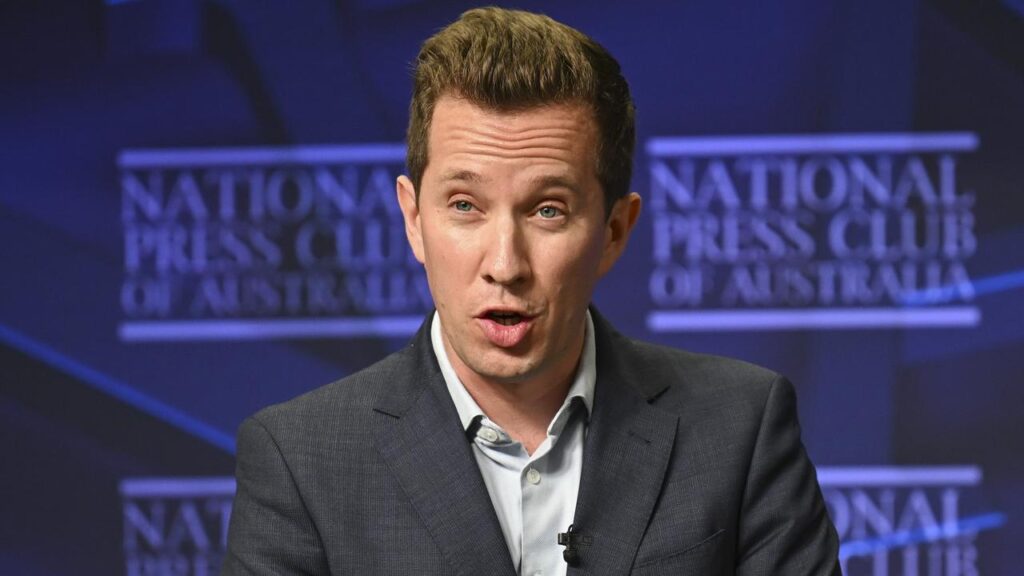‘They are rubbish’: Proof US pick-up trucks are taking over Australia
Written by admin on October 4, 2024
Enormous American pick-up trucks that don’t fit in supermarket carparks and cause extra fatalities on our roads continue to sell at massive rates in Australia, according to the newest data.
Car sales data for the month of September is out – and even as total car sales slowed down,
American pick-up truck models continued to find their way into Australian driveways.
There are plenty of people out there who want a car that weighs more than a bulldozer and gets the fuel economy of a 1990 Mercedes.
I saw a bloke with one of these the other day and he had to use a little step stool to reach the tray of his own vehicle. They are rubbish.
The next chart shows the sales of the big trucks. They came out of nowhere and they are taking over our country. Who knew that this would be the consequence of shutting down car manufacturing in Australia?
The good news is that sales of the RAM 1500 have slowed down a bit. They sold 241 units in September 2024 compared to 586 units in September 2023.
The bad news is every car brand is now bringing gigantic American pick-up trucks to our shores to pick up the slack. It’s not just unfamiliar badges like Chevrolet. Now Ford and Toyota are doing it too.
The Ford F-150 (slogan: “GO BIG”) and the Toyota Tundra (review: “absolutely massive”) are starting to sell here.
Australians may be hesitant to purchase a vehicle from RAM or Chevrolet, but we are absolutely in love with Fords and Toyotas. Which is why this is a problem.
There are two things to know here.
The first is that having big trucks all over the roads is dangerous. The physics here is apparent to anyone who has ever done even the slightest high school science – when a heavy thing smashes a light thing, the light thing gets destroyed.
That light thing could be your mum in her Corolla, your son walking to school or your mate out for a bike ride. Some twerp in a truck is sending a text and boom, the other person is strawberry jam. The data on this is absolutely plain.
The government’s transport nerds say this about crashes with big utes: “When both a light commercial vehicle and light passenger vehicle are involved, occupant fatalities are four times more likely to be a light passenger vehicle occupant”.
Being in a big vehicle is a bit safer if you crash into a tree or if you get hit by a train. But a huge recent study in The Economist found that in America, “For every life that the heaviest 1 per cent of SUVs and trucks save, there are more than a dozen lives lost in other vehicles”.
In other words, buying a huge truck for your family does keep your family safe. A tiny bit.
But at the expense of making every other family much less safe.
The high front grilles of big utes knock people down to the ground so they go under the wheels, whereas a sedan tends to throw a pedestrian up onto the bonnet. And the weight of the thing things means they can’t stop as quickly, so they are more likely to hit something in the first place.
The ramp up
The second thing to know – big cars cause big cars.
Obviously, some jobs need large vehicles. The roads already have semi-trailers on them, huge Ford Transit delivery vans and box trucks for people moving house. I’m not under any delusion that the new American pick-up trucks are literally the biggest vehicles on our road.
They aren’t. And obviously some tasks require stuff to be moved around.
The difference is that these utes are marketed as normal family cars, and that means they end up at school pick-up, at Aldi and everywhere.
If everyone else has a Ford F150 and you’re in your Mazda CX-3, you can’t see anything in traffic and you’re going to get killed in a two-vehicle crash. So of course you will buy a bigger vehicle when it’s time to buy your next one.
Americans are terrified of hatchbacks, and that’s because those cars are a death trap in a country where the roads are full of massive trucks. I’d like to live in a country where driving a moderate-sized car isn’t taking an insane risk. A place where if you buy your 18-year old daughter an eight-year-old Hyundai Getz to get to uni, you aren’t rolling the dice.
But we are not on that path.
We’ve already been through this cycle once. The best-selling car used to be the Falcon or the Camry. Now it’s the Ranger or the HiLux. People want height and people want protection. But when everyone gets height and protection, the cycle starts again.
There’s a Hummer parked in my suburb. When those came out in the 1990s, they were considered huge, dangerous, weird. Now it just looks like a car.
We’re in a ramp-up phase where the vehicles in our fleet are expanding again. For now, having one of these colossal mega-utes is still fairly rare. But in 10 years they’ll be the new
Ranger: just everywhere. That’s when sales of the RAM 3500 and the Ford F350 will start to take off.
And probably the companies will be trying to make an even bigger version to introduce.
Get off the escalator
This is one of those situations where individual rational choices add up to socially dumb outcomes, which is literally why we invented government.
There’s a million examples of these type of scenarios where we all just agree to pull our heads in a bit, make a rule, and everyone is better off.
So how can we tweak the rules? Luckily, it wouldn’t be hard to do so. Because not only are these mega-vehicles not penalised, they’re actually given tax discounts. The Ford F150 costs $106,990 and a car of that price would usually attract the luxury vehicle tax. However, commercial vehicles are exempt.
This is why people can afford extra size in this category. If we put the luxury car tax back on these mega-utes, it should cool demand and reduce the spillover where everyone else is pushed towards buying a giant car as well.
More Coverage
Europe shows the sort of results you can get. Over there, the best-selling car is a small hatchback and their road deaths per capita are way lower than the Americans.
We don’t need to go that far. It’d just be nice to not have to look up in 10 years’ time and find that the Ford Ranger is now considered a medium-size vehicle.
Jason Murphy is an economist | @jasemurphy. He is the author of the book Incentivology.







